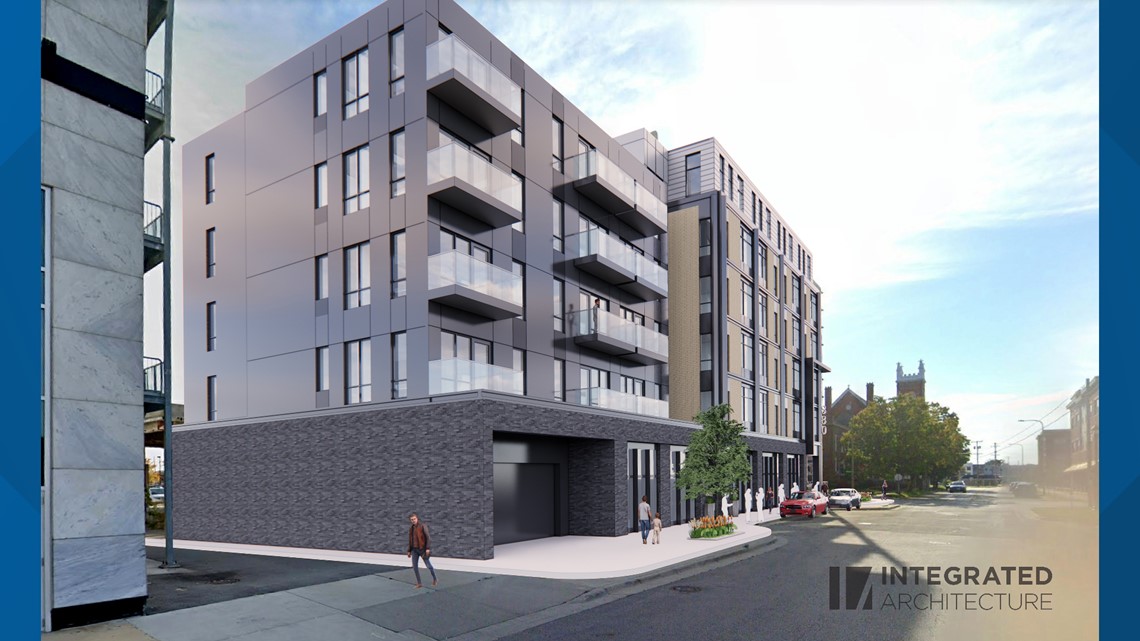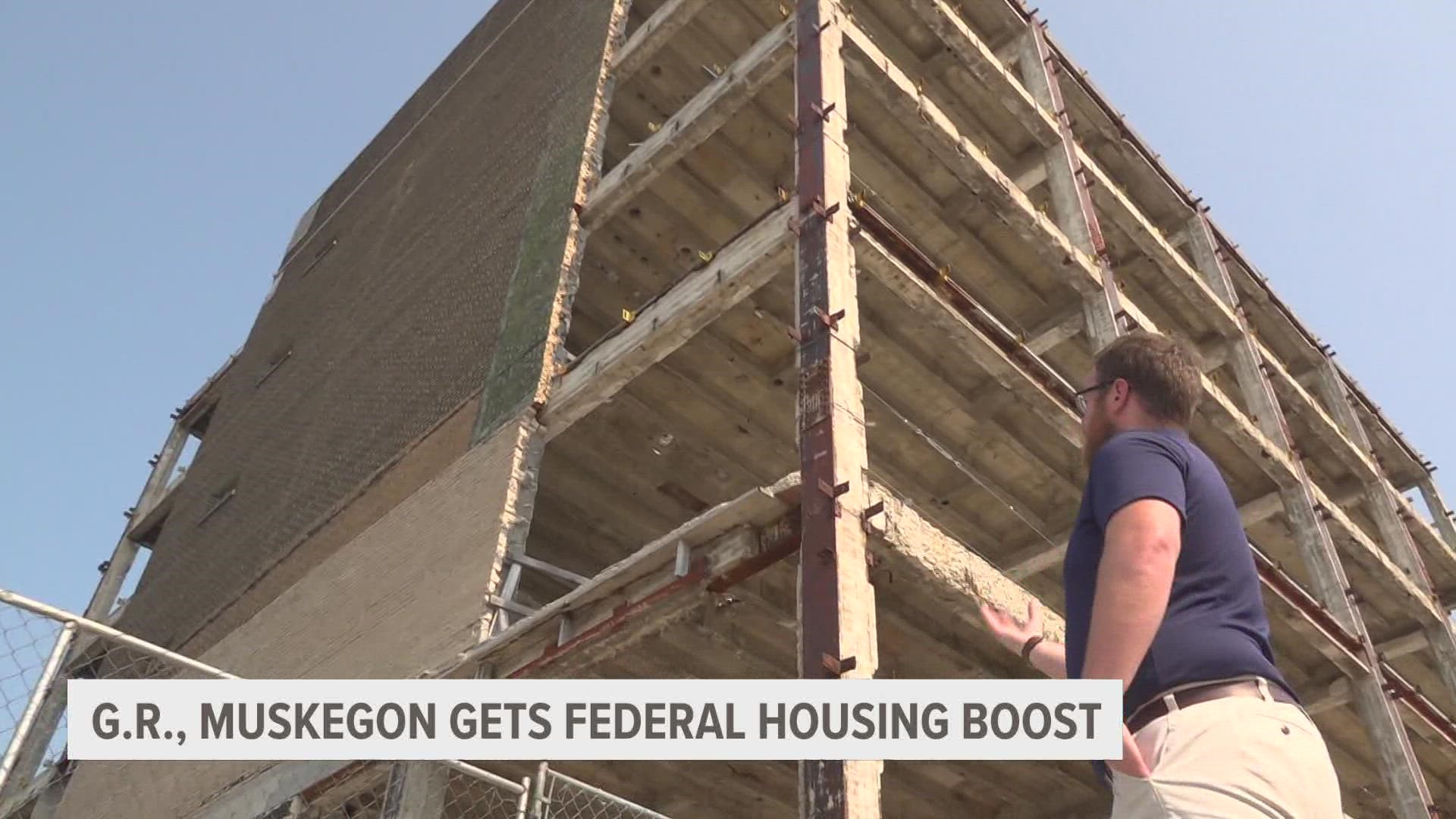MUSKEGON, Mich. — A statewide incentive program aimed toward addressing impacts of the pandemic through American Rescue Plan Act (ARPA) funding made several selections last week, awarding nearly $84 million in total.
Muskegon and Grand Rapids were both awarded subgrants of $6 million and almost $9.4 million respectively from Michigan Economic Development Corporation’s Revitalization and Placemaking (RAP) program.
Muskegon’s description lays out a revitalization plan to the area by adding diverse housing types at different levels of affordability, which is leading to two different projects set to be completed in 2024.
A historic bank at 1st and Webster that was often seen as a barrier to development is one of the two areas being improved, said Jake Eckholm, director of Development Services for the city of Muskegon.
An additional level is set to be added to the five-floor, now partially-deconstructed building. In total, it will house between 80 and 92 units, Eckholm said.
“The project calls for reutilizing that existing steel structure … It'll feature a six-story rehab of that existing structure, and then new construction of five stories, immediately adjacent. So a total of 11 floors of residential and tenant amenities at that project,” he said. “They're mixed use. So they'll feature micro retail event space. And one case in the case may be a fitness studio, but the primary objective for most of the floor plan and the dedicated floors is housing — one bedroom, two bedroom and studio apartments in our downtown.”


At the corner of 2nd Street and Western Avenue sits the Lake View Lofts, a housing development that will enter its second phase to its adjacent area. The two buildings will be connected upon completion, with the expansion bringing an estimated 105 units.
“RAP dictates that a percentage of units be considered affordable based on Michigan's AMI (Area Median Income) table,” he said. “A certain percentage of all units will be affordable units and they can do that either by keeping rents low or by changing square footages to create smaller units that are more affordable for people and still achieve the rent per square foot that's needed to cashflow the project. So while they're technically market rate units, they're still going to be a broad base of affordability in both projects.”
Similarly, the city of Grand Rapids will also be placing a focus on affordable housing, with eight of the 10 projects addressing the need.
Since the almost-$9.4 million is lesser than the $13.6 than what was requested, the city is now working with their applicants to explore ways to fill the financial gaps, the city’s economic development director Jeremiah Gracia said.
“At least four of those eight also have received a low-income housing tax,” Gracia said, later adding some projects will also create job growth. “Two of those projects are tied to new companies in their corporate headquarters, but more importantly, their commitments to hiring folks from the neighborhoods that focus,” he said. “Not only would they be opening their new corporate headquarters, but they're committed to making sure that they can do all they can to hire folks from the neighborhood, pay them a good wage and also allow them to afford — if not the specific units — but other housing units within the neighborhoods, invest in their current homes if they own them as well.”
A detailed description of the project summaries can be found here.
►Make it easy to keep up to date with more stories like this. Download the 13 ON YOUR SIDE app now.
Have a news tip? Email news@13onyourside.com, visit our Facebook page or Twitter. Subscribe to our YouTube channel.

